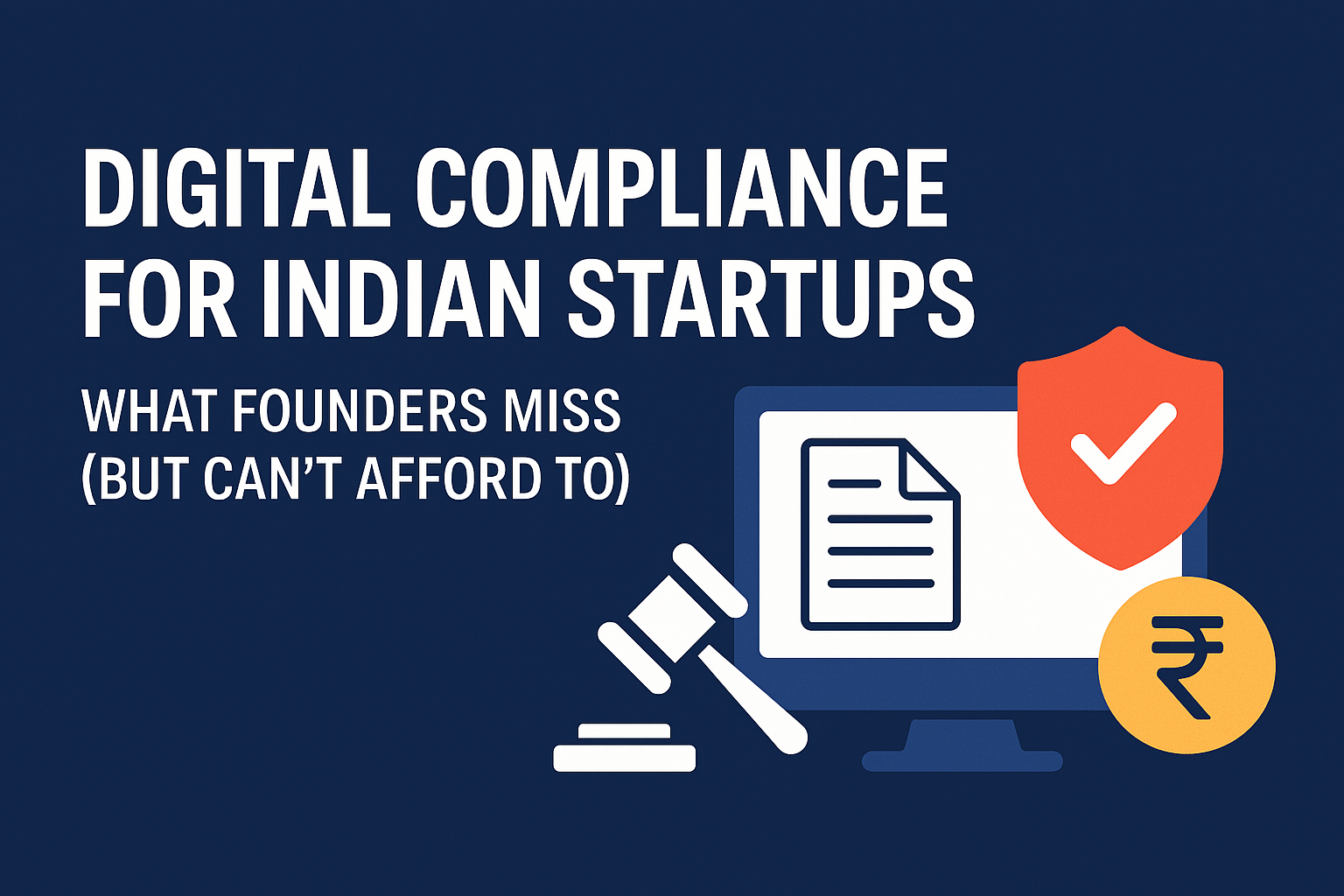In the rush to build MVPs, attract users, and chase funding, many Indian startup founders overlook a silent but critical pillar of sustainability: digital compliance. From data protection to employee contracts, the legal scaffolding of a business often gets sidelined—until it’s too late. In 2025, with increasing scrutiny from regulators and smarter consumers, ignoring compliance isn’t just risky—it’s a growth killer.
Let’s break down what digital compliance for Indian startups really entails, why it’s often missed, and how founders can build it into their strategy without losing momentum.
What Is Digital Compliance for Indian Startups?
Digital compliance for Indian startups refers to the set of legal, regulatory, and operational standards that govern how a business operates online. This includes:
- Data protection laws (like India’s Digital Personal Data Protection Act)
- GST registration and filings
- Employee contracts and labor law adherence
- Website disclaimers, privacy policies, and terms of service
- Cybersecurity protocols and reporting obligations
Startups often assume these are “big company problems.” But in reality, even a solo founder with a landing page and a payment gateway is subject to these rules.
Common Pitfalls Founders Overlook
Despite good intentions, many founders fall into traps that can later lead to fines, lawsuits, or reputational damage. Here are the most frequent blind spots:
1. No Privacy Policy or Terms of Use
If you’re collecting emails, analytics, or payments, you need clear policies. Not having them violates consumer protection norms and weakens trust.
2. Improper Employee Contracts
Hiring freelancers or interns without formal agreements can backfire. Indian labor laws are strict about working hours, benefits, and termination clauses—even for startups.
Potential Fine: ₹10,000 to ₹1 lakh per violation under labor law provisions.
3. Skipping GST and TDS Filings
Even if your revenue is modest, skipping tax filings can trigger penalties or block future funding. Investors now ask for clean compliance records.
Potential Fine: ₹10,000 to ₹25,000 per missed filing, plus interest and late fees.
4. Ignoring Data Protection Laws
With India’s new DPDP Act, startups must disclose how user data is stored, processed, and shared. Non-compliance can lead to fines up to ₹250 crore.
Potential Fine: ₹50 lakh to ₹250 crore depending on severity and nature of breach.
Building a Lean Compliance Stack
You don’t need a legal team to get started. Here’s how to build a lean, founder-friendly compliance stack:
- Use templates from trusted sources for contracts, privacy policies, and NDAs.
- Register for GST early—even if optional—to build credibility and avoid future backlogs.
- Automate filings with platforms like ClearTax or RazorpayX.
- Consult a CA or legal advisor quarterly to stay updated on changes.
- Document everything—from employee onboarding to vendor agreements.
Embedding digital compliance for Indian startups into your workflow doesn’t slow you down—it protects your upside.
Why Investors Care About Compliance
In 2025, investors are more cautious. They’re not just looking at your product—they’re scanning your legal hygiene. A startup with poor compliance signals risk, especially in sectors like fintech, healthtech, or edtech.
Having your digital compliance sorted can:
- Speed up due diligence.
- Unlock better valuation
- Reduce legal costs during scaling.
- Build trust with enterprise clients.
